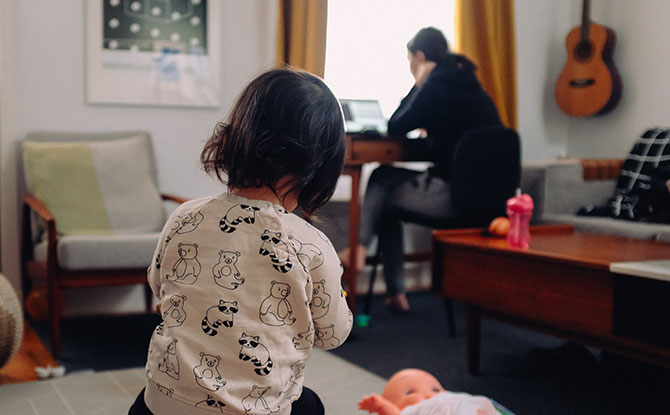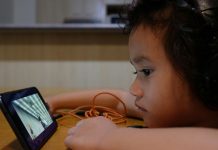
If you’ve been feeling a palpable sense of loss of control, you are not alone. 6 in 10 mothers face stress during the Circuit Breaker period. The rise in tension in households is evident with an increase in domestic violence cases and calls for help to the care hotline. Dr Elly Sabrina from Families For Life, a family physician, shares her views on coping with stress, manage the situation at home and reaching out to other loved ones despite the distance.
Little Day Out Interview with Dr Elly Sabrina
Can you tell us more about yourself and your work?

I’m a family physician running two private family clinics with my husband (also a family physician) and a partner. Apart from clinical work, both of us are active in community work. I’m in MHPA (Muslim Healthcare Professionals Association), Geng Sihat SG (a community movement active in health promotion activities), M3 (a collaborative effort between MUIS , MESRA and MENDAKI) and a council member of Families For Life. I’m passionate about promoting healthy living and strong, resilient families.
What are some common stress issues that adults – caregivers and parents face during COVID-19?
As parents, there is a struggle of balancing work, childcare and self-care while keeping worries (both theirs and their children’s) under control. Many parents are working from home now and with the children also at home doing home-based learning, parents must juggle multiple roles as employees, teachers, chefs, janitors, partners, etc. Many find this overwhelming and there is a lot of tension between parents and in relationships between couples. For those whose jobs or businesses are affected, financial worries loom high in their minds. There are also those who are caregivers of aged parents. If the aged parents live in a different household, there is a constant worry of how they will be able to manage with living on their own during the Circuit Breaker period.
FREE FOR LITTLE DAY OUT PARENTS: Sign Up for a Free Trial with ACT 3 Academy to Find Out If Drama Classes are Right for Your Child
Can you tell us more about the emotional turmoil we may experience? What are the contributing factors?
Sudden change in daily routines, suddenly thrust into assuming more roles/responsibilities at home, financial hardships, constant exposure to news on the COVID-19 and the unpredictability all add to the anxiety and mental stress.
What are some of the ways to tell when our partners, loved ones and colleagues are feeling down?
Behavioural changes like losing tempers easily, moody difficulty sleeping /sleeping too much, having panic attacks, palpitations are indications of stress.
Spend some time each day to ask our partners how they are feeling. For loved ones or colleagues living in different households, try to reach out to them by phone or digitally. Provide a listening ear and do not be judgemental. Reassure them that they are not alone and that there are others too experiencing the same stress and anxiety.
How should we deal with our emotional and mental health during COVID-19?
Limit the amount of time we spend on news on COVID-19 on various media platforms. Create routines at home. Demarcate work area, study area, family area. Maintain social connections through phone, texts, various digital platforms. Ensure you get enough sleep, eat healthy and exercise. Focus on the positive effects of Circuit breaker rather than the constraints (e.g. more time to learn something, or do things you haven’t had the time to do before ).
What are your favourite go-to activities to reduce stress?
I have always loved exercising and I kept up with my exercise routine of 3 times a week, even during the Circuit Breaker. I do cardio and strengthening exercises using equipment available at home and get the kids and hubby to join in. We also attend virtual bootcamp sessions weekly with our friends via Zoom conference.
I took up gardening at home this circuit breaker period. Previously, it was only my hubby doing it but with more time at home, I have begun appreciating it. It feels good seeing the vegetable and herb gardens thrive. Now, more than half our vegetable consumption comes from our garden!
I help in raising awareness about COVID-19 and coping strategies by participating in media programmes on TV, radio and social media. I also participate in voluntary activities rendering help to migrant workers.
Thank you Dr Elly Sabrina for your advice!
Coping with Stress During Crisis
Don’t be too hard on yourself during this period. Remembering some self-care like exercise, a hobby or a new skill may help you to focus on other things in life. Like Dr Elly, you might want to reach out to others in need during the crisis.
Meanwhile, stay in, stay safe and positive!

















